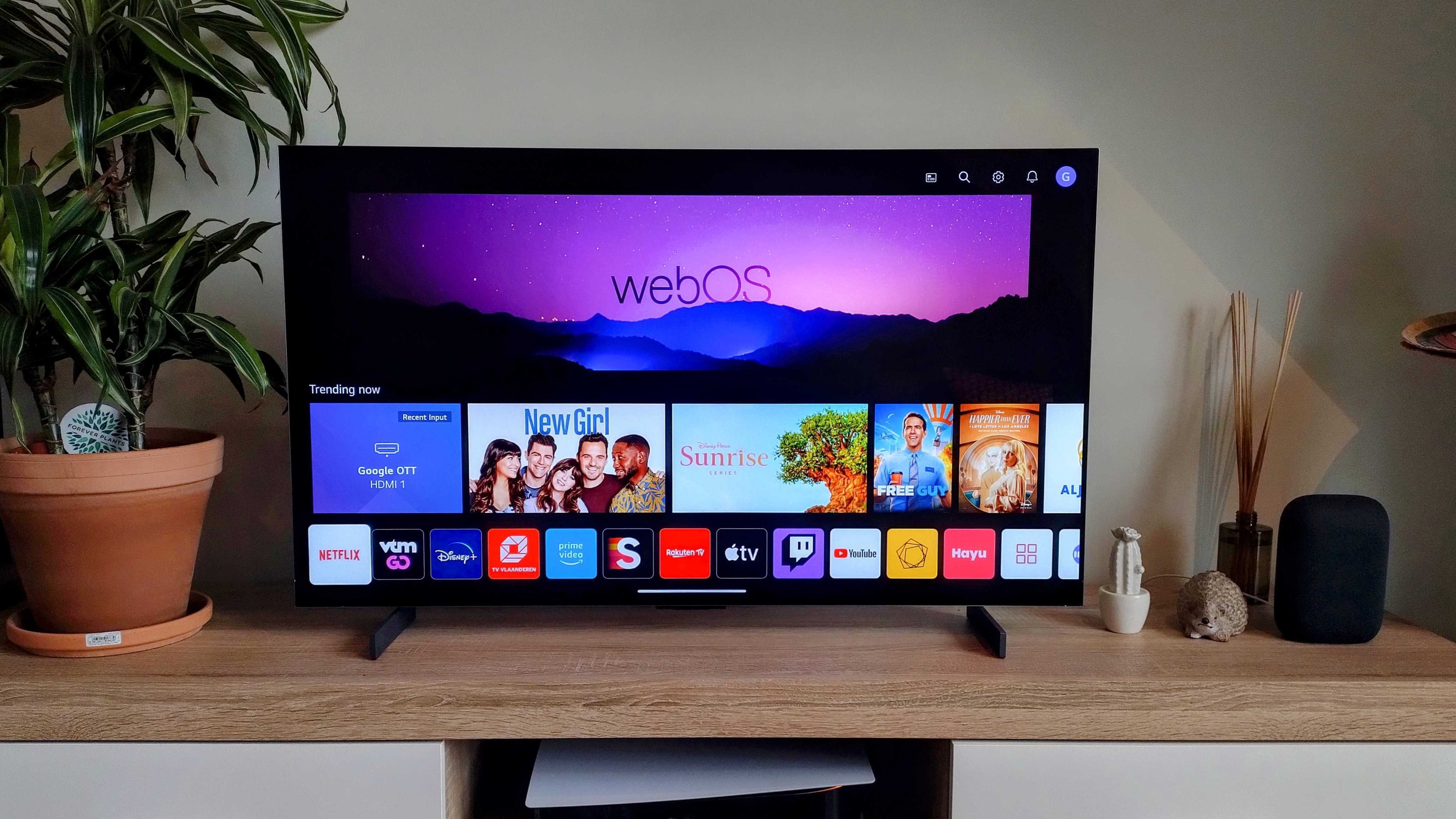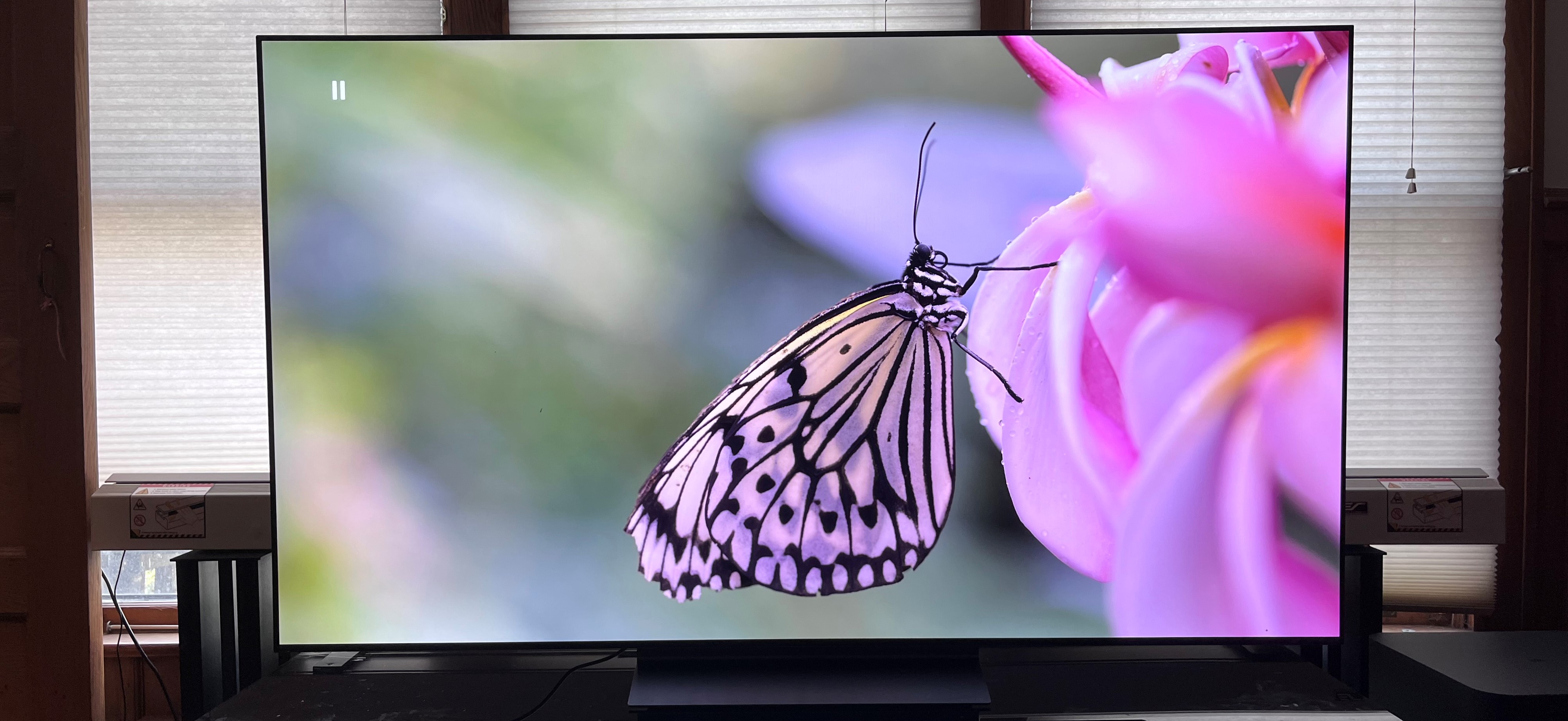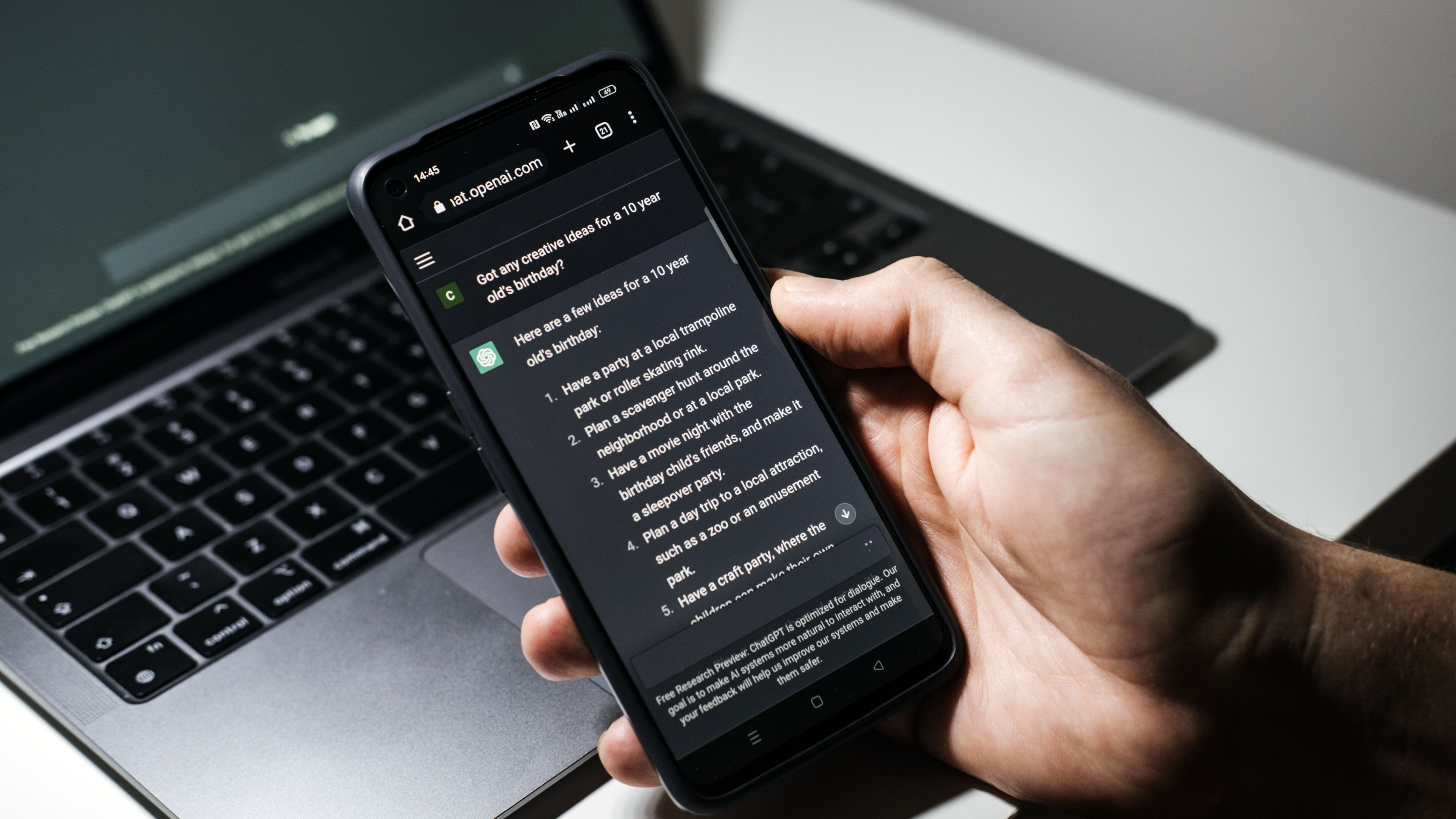I asked ChatGPT and Bard what TV I should buy – only one knew the world’s best TV
Today's chat bots aren't quite ready to replace the Geek Squad

Sign up for breaking news, reviews, opinion, top tech deals, and more.
You are now subscribed
Your newsletter sign-up was successful
One of the great hopes of new AI 'knowledge' systems such as ChatGPT and Google Bard is that they can synthesize information from many sources online, and give you a summary – much easier than trawling through a bunch of different sites, right?
An obvious use for this would be getting buying advice; if you don't know where to start, why not just ask a bot? Then you can be specific in what you ask, even – you could say "I want a new 4K TV that costs under $1000, what should I buy?", for example?
I was curious whether it would give advice as (ahem) accurate and excellent as you'd get from the human people who put together our guide to the best TVs – so I went to ChatGPT and Google Bard and asked them that exact question, along with some follow-ups.
Is the job of me, a real human, in danger? Well, one was definitely better than the other, but it really showed the two problems with these things right now: they don't keep up with current affairs, and they don't actually understand what they're talking about, which means they don't always make sense.
For this, I was using ChatGPT 3.5 (which is what most people would have access to; ChatGPT 4 remains limited access) and Google Bard. Here's how it went.
"I want a new 4K TV that costs under $1000, what should I buy?"
Let's start with the main question I asked. I wanted to give them a price parameter to see if it could even understand price considerations.
ChatGPT offered me four options, with a little description for each:
• TCL 6-Series
• Hisense H9G
• Vizio M-Series
• Samsung TU8000
Sign up for breaking news, reviews, opinion, top tech deals, and more.
The descriptions for these described them reasonably accurately, though were not that helpful overall – but the main problem is that three of them can't be bought any more. The TCL 6-Series sort of can, but more by luck than design – it just so happens that the newer model has the same name as the old model, and is also very good. So ChatGPT might accidentally lead to a great TV (as our TCL 6-Series Roku TV (2022) review will tell you) – but it certainly didn't do it through actual knowledge of the market.
Bard fared better, though sort of by default. It offered four options:
• LG C2 OLED
• TCL 6-Series Roku TV
• Hisense U8H
• Vizio M-Series Quantum
So, as with ChatGPT's suggestions, the bottom two options are not available any more, and I'm pretty sure it's talking about the previous-gen TCL 6-Series, and not the one I mentioned above. But it would still lead you to the latest version, so fine.
But its number one suggestion is actually good advice! Yes, the LG C2 is last year's model – but we still rate it as the best 4K TV around, thanks to price cuts. It is a bit of a cheat, because only the smaller models are under $1000, and most people go for 55 inches and up, which are not under $1000 – but hey, at least it's steering people in the right direction (ie, the direction chosen by a probably human writer).
Stock is starting to run low on the LG C2, though – and I wonder how quickly Bard will update to mention newer models.

Gentle encouragement
I wanted to steer ChatGPT in the right direction, if possible, so I asked it "What about an OLED TV"? Its suggestions for OLED TVs under $1000 were even worse, though.
It recommended the LG BX and Vizio OLED TV, both of which date back to 2020. It will not surprise you to learn these TVs are not available today. I'm happy to point you towards the LG B2 (Vizio has dropped OLEDs) if you want a newer version, though… that's the service you get from an expert human.
ChatGPT did amuse me with one of its useful bits of advice about OLED TVs: "they may not be as bright as LED/LCD TVs in brightly lit rooms". That's not really how brightness works, Chatty – they're not as bright in any room, it just happens to be noticeable in brightly lit rooms.
I was curious about ChatGPT's other opinions on TV tech, so I asked "What kind of TV is best for watching movies?", and it gave me a very brief run-down of what to look for, including gems such as larger screens being better for a cinematic experience, and that HDR is good (but didn't tell me what kinds to look for).
It finished by saying "Overall, an OLED TV or a high-end LED/LCD TV with a 4K resolution and support for HDR and a wide color gamut would be a great choice for watching movies." Which is a bit like me asking which phone is best taking photos and it telling me that I should get a high-end Android or iPhone. Yeah, no kidding, those are the two options! Thanks for the tip!
Is Dolby Vision or HDR10+ better?
I asked both AIs the above, and here's the first paragraph from each of them. First, ChatGPT:
"Dolby Vision and HDR10+ are two competing HDR (High Dynamic Range) formats that offer enhanced color and contrast for a more immersive viewing experience. Both formats are designed to deliver more accurate colors and better contrast, but there are some differences between them. Dolby Vision is a proprietary HDR format developed by Dolby Laboratories."
Now Bard:
"Dolby Vision and HDR10+ are two competing high-dynamic-range (HDR) formats that offer improved picture quality over standard dynamic range (SDR) content. Both formats use dynamic metadata to provide scene-by-scene information about brightness, color, and contrast, which can result in a more realistic and immersive viewing experience. Dolby Vision is a proprietary format developed by Dolby Laboratories."
So not the broadest diversity of thought there. However, the rest of the description was interesting. Bard managed to mention the most important factor here, which is that Dolby Vision is supported on more devices, but just slipped it in rather than making that the defining point. In its eventual summary, it said "If you want the best possible picture quality and you don't mind paying a premium, then Dolby Vision is the way to go. If you're looking for a more affordable option that still offers great picture quality, then HDR10+ is a good choice."
The thing is, you don't pay for these things, so this is nonsense advice. It had the best description up to this point, then threw its ankle on the landing.
ChatGPT's final paragraph was "Overall, both formats are excellent and offer significant improvements over standard HDR. However, Dolby Vision is generally considered to be the better format due to its wider color gamut, higher brightness, and more sophisticated metadata. That being said, the difference between the two formats may not be noticeable to everyone, and the availability of content in each format may vary depending on the streaming service or Blu-ray disc you're using."
This is a more accurate final thought to leave people with – I just wish it mentioned that the availability leans heavily towards Dolby Vision, because it should be the ultimate takeaway.

Old news
I asked a bunch more questions with different angles – "What 120Hz TV should I buy?", "I want to buy a 75-inch mini-LED TV. Which is best?", and "If you were a TV expert, which TV would you recommend for someone with a budget of $1000 looking for a 65-inch TV?"
The last of these was interesting, because both TVs suggested the same TCL 6-Series model (and ChatGPT confirmed in this case that it was talking about a much older version), but Bard broke down the pros and cons of the TV in a way that was much more useful than most of the descriptions given so far.
But in all cases, the recommendations were largely one to two years out of date, which is no surprise when you think about how these systems need to be trained on existing data.
I also asked Bard "Do you think I should buy an LG C2 or Samsung QN85A TV?" (I chose these two because it seemed to know them both), and it gave me a pretty good answer that explained the tech differences accurately and usefully, and gave specific recommendations for who might want each TV. It overstated the superiority of the Samsung's gaming specs compared to the LG C2 (which we rate as the best gaming TV right now), but overall I'd say the advice would help people. Well, as long as people don't want to know about the latest TVs – but this was the information that most impressed me, still, and showed the most potential for the future.
Newer models will be able to talk about newer TVs, but the question is when we'll be at a stage where they can always keep up. Certainly, you won't be able to get info comparing 2023's TVs any time soon. Only definitely real humans like me can tell you that for now.
So, does it look likely that you can entrust your buying decisions to the latest AI fonts of knowledge? Not soon – and maybe not later. You see, even in the most impressive part of my use of it, where it compared two models, it overstated the important of the differences. Will it ever be able to tell you that even though one OLED TV is brighter on paper, it doesn't actually matter in the average room? Or that even though one TV has a higher refresh rate for gaming, it's not usable by 99% of people, so you should focus on other factors?
The facts say one is superior, but humans can tell you what's just marketing noise. And these AI bots can only learn to mimic that human opinion if enough people write it in articles that it can synthesize into advice it can give. But it's opinion, and maybe that won't happen – we won't all agree about the nuances of the best OLED TVs.
After all, critical thinking doesn't always lead everyone to the same conclusion. You might be thinking right now that I'm dead wrong about how ChatGPT will evolve, in fact. You may not even believe I'm human. I don't know how you guessed that I'm three racoons in a trenchcoat, but please don't mention it to anyone.

Matt is TechRadar's Managing Editor for Entertainment, meaning he's in charge of persuading our team of writers and reviewers to watch the latest TV shows and movies on gorgeous TVs and listen to fantastic speakers and headphones. It's a tough task, as you can imagine. Matt has over a decade of experience in tech publishing, and previously ran the TV & audio coverage for our colleagues at T3.com, and before that he edited T3 magazine. During his career, he's also contributed to places as varied as Creative Bloq, PC Gamer, PetsRadar, MacLife, and Edge. TV and movie nerdism is his speciality, and he goes to the cinema three times a week. He's always happy to explain the virtues of Dolby Vision over a drink, but he might need to use props, like he's explaining the offside rule.